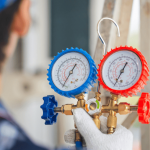
Does Homeowners Insurance Cover HVAC Systems? What You Need to Know
Does homeowners insurance cover problems with your HVAC system? You might find yourself asking this question anytime your air conditioning system is acting up. Unfortunately, the answer isn’t always straightforward.
Purchasing a new heating and cooling system is an investment, so it’s important to know how your investment is protected in the event that something goes wrong and it needs to be replaced.
Under certain circumstances, you may be able to file a claim with your homeowners insurance company to remedy an issue with your unit. It is important to understand what types of scenarios are covered under your insurance policy because every policy is unique. Be sure to consult with your insurance agent or insurer about specifics pertaining to your policy.
Does Homeowners Insurance Cover HVAC Systems? Here’s When You’ll Likely Be Covered
Depending on the type of unit in your home, your heating and cooling system may be considered part of the structure of your home. If so, you will be able to file claims for damages from specific causes. Policies typically only cover damage done to a unit as a result of a “covered peril” that is listed in your policy.
Does homeowners insurance cover HVAC services as a result of natural disasters? Living in Florida, it is likely that you may experience home or property damage following a storm. For this reason, there are a few scenarios in which Florida homeowners can expect their insurance policy to cover the cost of replacing their units.
In the event that a fire destroys an HVAC unit or lightning strikes and damages its electrical components, homeowners can typically count on their insurance policies to cover it. Additionally, if a tree falls on your unit during a storm or other covered incident, you’d also likely be covered by your homeowner’s insurance.
Does Homeowners Insurance Cover HVAC Systems? Here’s When You’re Unlikely to Be Covered
Your homeowners insurance policy is not going to cover malfunctions caused by lack of maintenance or general wear and tear. If 10 years pass and your compressor blows out, or your fan breaks, it will be up to you to get it fixed or have your unit replaced. Backyard accidents, such as a dent from a flying baseball or your child getting an item stuck in the fan, are also likely not covered by your insurance policy.
It’s also important to note that homeowners insurance companies typically treat central AC and window AC units differently when a claim is filed. While a central AC unit is considered part of your home’s structure, a window unit is covered as “personal property,” which means the scope of damage covered by your policy is generally narrower with a window unit.
Filing an HVAC Insurance Claim
If you believe your unit was damaged in a scenario that would be covered by your homeowners insurance policy, you’ll then need to decide if filing a claim is your best option.
Before filing a claim, it’s important to schedule an inspection with an HVAC technician so they can provide an estimate of the cost to repair or replace the unit. If the cost is less than or only slightly higher than your policy’s deductible, you may want to consider paying out of pocket to avoid the rising premiums that filing a claim could potentially cause.
In the event you do actually need to file a claim, start by taking photos to document the visible damage to your unit. Then, record the model and serial number so you can call your insurance provider to begin the claims process. Your agent or insurer will ask for details regarding the type and cause of damage, then check to make sure it is covered by your specific policy. After it’s determined that your unit is covered, an adjuster will visit your home to inspect your system and estimate how much money the repairs to your system will cost.
Stay Cool and Covered with Barineau
Though many extreme scenarios can result in damage to your heating and cooling system, it’s far more common for systems to break down as a result of wear and tear over time. The good news is that much of that wear, and thus the need for premature replacement, is preventable. One of the best ways to ensure your system lasts is to enroll in a preventative maintenance program.
If you’re interested in participating in our Total Comfort Service Program, which includes inspections, discounts, same-day service and more, contact Barineau Heating and Air at 850-580-4029 or enroll online.




